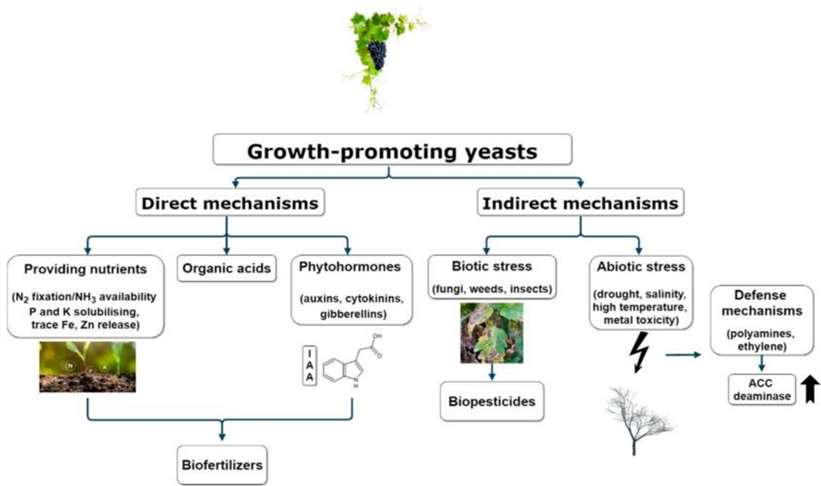Increasing crop yield is the issue that breeders pay most attention on throughout the existence of agriculture. In view of the constant growth population all over the word, this issue is becoming more and more relevant. The current agricultural practices are overly dependent on using chemical fertilizer and pesticide, intensive tillage, and over irrigation, which have doubtlessly handled majority of countries meeting the food requirement, nevertheless brought environmental and health problems, such as soil fertility deterioration, overuse of soil and water resource, environment pollution and others.

Biofertilizers are substance containing living microorganism that can improve soil fertility while applied on plant or in soil. By introducing genetically modified or natural microorganisms, natural nutrient cycle of soil can be restored, as well as its organic structure. Utilizing biofertilizer enhance health and sustainability of soil, and also reduce the usage of synthetic fertilizers and pesticides. Biofertilizer has been used in many places all over the world, crops including corn, oat, rice, wheat, barley, sorghum, potato, onion, carrot, eggplant, tomato, sunflower, soybean, cotton, and many other crops have been cultivated with biofertilizer. As substitute of synthesis fertilizer, biofertilizer has benefits over it:
As a nitrogen fixer, cyanobacteria can be utilized as nitrogenous fertilizer. In tropical countries, nitrogen fixation in rice cultivation mainly relies on cyanobacteria. Besides, cyanobacteria build symbiosis relationship with other plants and improving their growth and productivity. Except its ability to fix nitrogen, cyanobacteria can resolve organic phosphonates and improve utilizing of phosphorus in plants. What's more, cyanobacteria produce growth hormone and siderophores which improve the productivity and growth of plants.
With gene editing technology, cyanobacteria strains with tolerance to various stresses can be generated, as well as strains with optimized nitrogen fixation and other degrading ability.
Yeast play role as biostimulants and biopesticides, which provides soluble nutrients, organic acids and plant hormones that improve tolerance to stresses and utilization rate of nutrient in plants. Some yeast strains have been proven to be potential to fix nitrogen and some of them are capable of performing the denitrification process.
Some bacterias strains have been proven to be able to solubilize potassium, phosphate, calcium, iron, magnesium, sulfur and zinc. With gene editing technology, yeast can be genetically modified to perform solubilization processes of these nutrients.
Some yeast strains are capable for producing growth hormone, such as indole-3-acetic acid (IAA) and cytokinins (CTK). With gene editing technology, process of producing growth hormone can be manipulated and optimized.
 How Yeasts Promoting Plant Growth (Hernández, et al. 2021)
How Yeasts Promoting Plant Growth (Hernández, et al. 2021)
With advanced and mature gene editing platform RecoNase™, Lifeasible offers services including gene knock-in and gene knock-out in cyanobacteria, chloroplast and yeast. Our experienced scientists have established efficient and high-precision gene editing toolkit, in which our customers can get satisfying results on time. Please feel free to contact us, get started with our professional services.
Reference